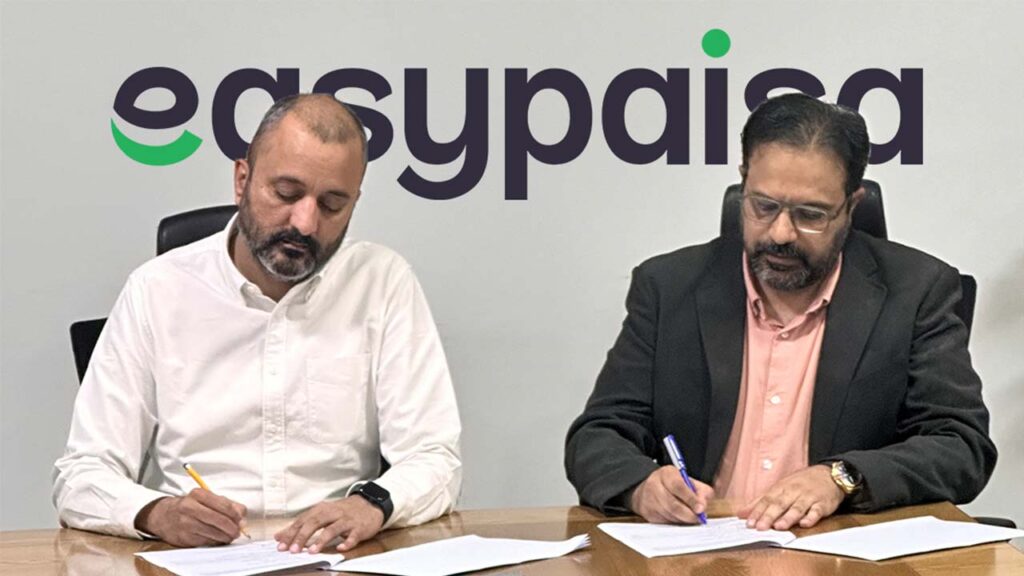SGDLoan.com – Starting a construction project in Singapore often requires substantial financial support, and securing a commercial loan for construction is a critical step to bring your project to life.
Whether you are planning to develop an office building, retail complex, or industrial warehouse, understanding how commercial loans work can save you significant time, money, and future complications.
In this article, we will explore everything you need to know about obtaining a commercial loan for construction in Singapore, including commercial building loan rates, the maximum loan amount you can expect, legal considerations, and a step-by-step guide to applying successfully.
Understanding Commercial Loans for Construction

Securing a commercial loan for construction is a fundamental requirement for developers and businesses involved in building or renovating commercial properties in Singapore.
This form of financing is specifically tailored for large-scale projects where the construction period is extensive and requires phased disbursements of funds.
Types of Commercial Construction Loans Available
There are several loan structures available, each catering to different stages of a construction project:
- Construction Loans: These short-term loans are designed to fund the building process. Funds are usually disbursed progressively based on project milestones. Once construction is complete, the loan may be refinanced into a mortgage.
- Take-Out Loans: Once the property is completed and operational, a take-out loan replaces the short-term construction financing with a longer-term mortgage, often at better rates (Investopedia).
- Floor Loans: Particularly for multi-tenant properties, floor loans disburse funds once a minimum occupancy level is achieved, providing security for lenders (Investopedia).
Choosing the right loan type can influence cash flow management and overall project profitability, making it essential to assess your construction timeline and financial projections carefully.
Commercial Building Loan Rates in Singapore

Before committing to a commercial loan for construction, it is vital to understand the landscape of commercial building loan rates in Singapore.
Loan rates directly impact your repayment obligations and the total cost of financing over time.
Current Commercial Building Loan Structures
Loan rates for commercial properties in Singapore typically fall into two categories:
- Fixed Rates: These loans offer a stable, predictable repayment schedule. They shield borrowers from market volatility but might be priced slightly higher than floating rates initially.
- Floating Rates: Tied to the SORA benchmark, floating rates fluctuate with the market. They can be beneficial during periods of falling interest rates but carry a risk of rate increases.
Below is a comparison of several major lenders:
| Bank | Maximum Financing | Interest Type | Notable Features |
|---|---|---|---|
| OCBC Bank | Up to 80% | Fixed or SORA-pegged | Tailored solutions for SMEs, flexible terms |
| UOB Bank | Up to 90% | Fixed or Floating | Tenures up to 30 years, attractive rates for established businesses |
| HL Bank | Promotional Rates | Fixed Rates from 3.38% | Offers for owner-occupied and investment properties |
Understanding how these loan structures align with your business cash flow is crucial for long-term financial health.
When assessing rates, businesses should also consider ancillary fees such as legal fees, valuation costs, and prepayment penalties, which can add to the overall expense of the loan.
Maximum Loan for Commercial Property

When applying for a commercial loan for construction, it is important to know the maximum loan amount you might qualify for, as it dictates how much equity you must inject into the project.
Key Factors Affecting Maximum Loan Amount
The maximum loan for commercial property is largely determined by the Loan-to-Value (LTV) ratio:
- Up to 90% LTV: Offered mainly by banks such as UOB for SMEs that meet specific eligibility criteria (UOB Bank).
- Up to 80% LTV: A more common standard offered by banks like OCBC, based on purchase price or valuation, whichever is lower (OCBC).
Several factors can influence your maximum loan amount, including:
- Borrower’s Financial Strength: A strong credit history and stable financial records significantly improve borrowing capacity.
- Purpose of Property Use: Properties for own business use often qualify for higher financing compared to those bought purely for investment.
- Location and Property Type: Properties located in prime areas or with high resale potential generally secure better financing terms.
Understanding these elements enables more effective financial planning and ensures you secure sufficient funding for project completion.
Eligibility Criteria for Commercial Property Loans

Meeting eligibility criteria is essential for securing a commercial loan for construction.
Singapore’s financial institutions have established standard benchmarks to assess borrower suitability and manage lending risk.
General Eligibility Requirements
To qualify for a commercial property loan in Singapore, applicants generally must meet the following:
- Business Incorporation: Must be a Singapore-registered entity, typically operating for more than 15 months.
- Ownership Structure: A minimum of 30% of the company must be locally owned by Singaporeans or Permanent Residents.
- SME Status: Annual revenue should not exceed S$20 million for SME-based loan products.
Additionally, lenders will often require:
- Recent Financial Records: Two years of audited financial statements or, for newer companies, strong management accounts.
- Detailed Business Plan: Especially critical for construction projects to demonstrate project viability and repayment capability.
- Relevant Experience: A proven track record in property development or business operations enhances loan approval chances.
A meticulous approach to preparing the required documents can significantly speed up approval and negotiation processes (Lendingpot).
Can Commercial Property Be Used for Residential Purposes in Singapore?

Many property investors wonder: can commercial property be used for residential Singapore purposes?
The short answer is no, without explicit permission.
Singapore’s Urban Redevelopment Authority (URA) enforces strict land-use guidelines, ensuring that properties are utilised according to their approved zoning.
Key Regulations to Know
- Commercial Usage: Properties zoned for commercial use must be used for business activities, such as offices, retail spaces, or industrial purposes.
- Change of Use Application: If an owner wishes to convert commercial property for residential use, they must submit an application to URA. Approval is rare and heavily scrutinised.
- New Restrictions: As of November 2024, additional restrictions apply for foreigners purchasing commercial-residential mixed properties, requiring approval under the Residential Property Act (Straits Times).
Non-compliance with zoning regulations can result in significant penalties, including forced sale orders and hefty fines.
Thus, while flexibility in property usage might seem appealing, investors must always verify intended use compatibility before purchasing.
How to Get a Loan for Construction Business

If you are planning to secure a commercial loan for construction, a structured approach can dramatically increase your chances of success.
Step-by-Step Guide to Securing a Construction Loan
- Assess Your Business Readiness:
- Review financial statements, credit history, and cash flow forecasts to ensure your business meets bank standards.
- Define Project Requirements:
- Determine how much financing is needed, project timelines, and projected returns.
- Gather Key Documentation:
- Include business incorporation certificates, audited financials, construction project plans, and property details.
- Research Financial Institutions:
- Compare multiple lenders, considering not just rates but also flexibility in terms, fees, and service quality.
- Prepare a Comprehensive Loan Proposal:
- A detailed loan proposal showcasing project feasibility, profitability, and repayment ability can distinguish you from other applicants.
- Submit Multiple Applications:
- Applying to more than one bank enhances negotiating power and increases approval chances.
- Review and Negotiate Offers:
- Evaluate interest rates, hidden fees, early repayment penalties, and potential refinancing options.
- Accept the Best Offer and Complete Legal Formalities:
- Once satisfied, finalise the paperwork and fulfil any pre-disbursement conditions.
Alternative funding options, such as revenue-based financing, are gaining traction. This model allows businesses to repay loans based on a percentage of monthly revenues, offering flexibility for businesses with fluctuating income (Wikipedia).
Differences Between Commercial and Residential Property Loans in Singapore
While both involve borrowing funds for property acquisition, the key distinctions between commercial and residential loans in Singapore lie in risk assessment, loan amounts, and interest rates.
Commercial property loans typically attract higher interest rates due to perceived higher risks, and the approval process is more stringent. Residential loans, conversely, often benefit from government support, lower rates, and longer tenures.
Understanding these differences ensures you choose the right financial product for your investment needs.
How SORA Rates Affect Commercial Loan Payments
The shift from SIBOR to SORA (Singapore Overnight Rate Average) as the primary benchmark has transformed commercial loan structures.
SORA-based rates are generally more transparent and reflective of actual market conditions. However, businesses must prepare for rate volatility, which can impact monthly repayments on floating-rate loans.
Proper interest rate risk management strategies, like interest rate swaps or caps, can help mitigate this uncertainty.
Guide to Loan-to-Value (LTV) Ratio for Property Loans
The Loan-to-Value (LTV) ratio is a crucial metric that directly influences how much funding you can obtain through a commercial loan for construction.
A higher LTV means less capital outlay is required, improving liquidity for other business operations. However, lower LTVs might offer better interest rates as they pose less risk to lenders.
Understanding your LTV positioning enables better negotiation with banks and more accurate financial planning.
Regulatory Changes Affecting Commercial Property Use in Singapore
Recent regulatory updates have made it even more critical for property developers and investors to stay informed.
Changes such as the need for foreign approval to buy mixed-use properties and stricter guidelines on change-of-use applications reflect Singapore’s commitment to maintaining urban order and housing supply for its residents.
These shifts underscore the importance of consulting professional advisors and legal experts when dealing with commercial real estate transactions.
Funding Alternatives for Construction Businesses in Singapore
Beyond traditional bank loans, several alternative financing options are available for construction businesses, including:
- Private Equity: Ideal for large-scale developments with strong growth potential.
- Peer-to-Peer Lending: Platforms like Funding Societies offer quick access to smaller amounts with flexible terms.
- Government Grants: Certain SME development grants may partially support infrastructure expansion projects.
Diversifying funding sources not only strengthens financial resilience but also enhances overall project feasibility.
In conclusion, securing a commercial loan for construction in Singapore demands a thorough understanding of financing options, eligibility requirements, regulatory constraints, and strategic planning.
By carefully navigating commercial building loan rates, knowing the maximum loan for commercial property, and strictly adhering to zoning laws, businesses can unlock tremendous growth opportunities in the real estate and construction sectors.
Proper preparation, coupled with professional advice and diligent financial management, will position your construction project for long-term success and profitability.









